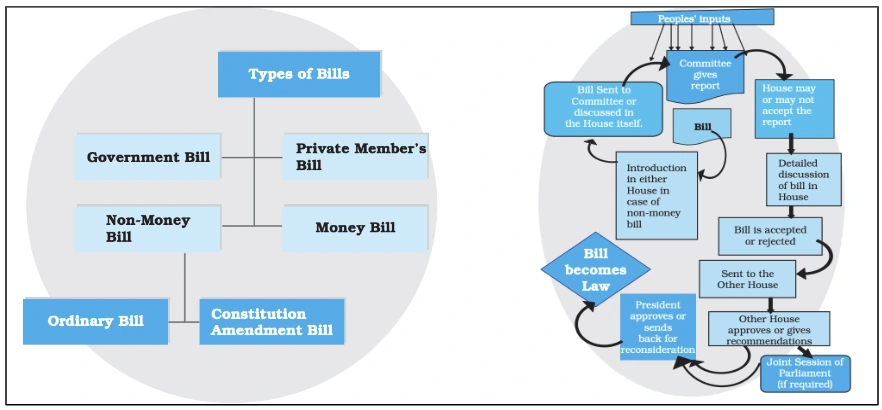![]() 28 Nov 2023
28 Nov 2023
The process of making law in the Indian Parliament involves several stages, with the indispensable role of legislature at its core. This rigorous process ensures that laws are thoroughly scrutinized, debated, and refined, promoting a more comprehensive and well-considered legal framework.
1. Legislative Insight: The Crucial Role of Legislature in Crafting Laws for the Nation
2. Guiding Policy Approval, Drafting, and Introduction of Bills for Effective Governance – The Crucial Role of Legislature.
3. Committee Discussions
4. Voting and Passage
5. Resolution of Disagreements
6. Money Bill and Rajya Sabha
7. Presidential Assent:

The Making of Domestic Violence Law: Role of Legislature and Citizen Initiative in Enacting the Protection of Women from Domestic Violence Act
|
Explore the nuanced process of law-making in the Indian Parliament, understanding the citizen-driven journey of the Domestic Violence Act. Delve into the intricate role of legislature in crafting, refining, and responding to legal frameworks. The role of legislature becomes pivotal at this stage, as members of Parliament are responsible for introducing and debating bills that propose new laws or amendments to existing ones.
<div class="new-fform">
</div>